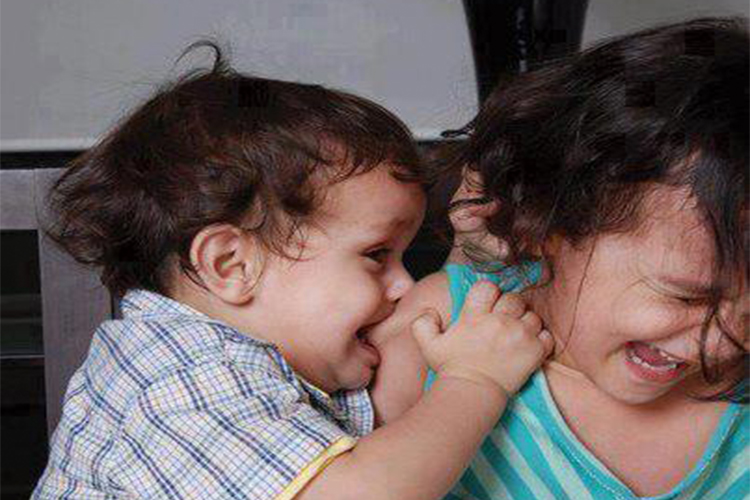
Children Biting
Biting is not bad behavior or a problem, it is a normal part of a child’s development that passes when they learn other ways to express themselves.
Biting can also frighten the child who bites. They can feel very powerful because of the strong reaction and attention it brings. However, the feeling of power can be scary because they can feel out of control. Children need to know that feelings can be managed to feel secure.
What causes biting?
- Experimental biting
One way babies explore the world is biting – they put things in their mouths and biting is just part of this. Until they learn words to express their feelings, it can also be a way they experiment with communication. Biting can seem like a game to them, especially if they get a big reaction. Many babies will try biting the breast when they are feeding, or try biting a parent or carer.
- Biting from frustration
When children get into situations they can’t handle frustration happens. Children under about three years old are usually not ready to play in a cooperative way with other children. If a child in a group takes their toy they may respond by biting or hitting. In that stage of development, they have not yet learned to control their impulses or other ways to cope with frustration. If biting gets a strong response they may see it as successful and try it again.
- Biting when feeling powerless
Often it is the youngest child in the family who bites. The older children can seem to be stronger, talk better and be abler to get what they want. The youngest can feel powerless and small. A less powerful child in a group can discover that biting is a way of getting some power.
- Biting under stress
Biting often occurs when a child is under emotional stress they can’t handle. They may be angry or very upset and the biting is a way to show their pain and distress. Young children don’t know what they are feeling or other ways to express their feelings – they just act!

The child who is bitten
When a child is bitten there can sometimes be a strong reaction from parents. It is important, whatever the reason for the bite to comfort the child who has been bitten. After some brief comforting, encourage the child to go straight back to normal play.
If a child is bitten at childcare, an upset parent may expect the child who has bitten to be excluded. Even this reaction is understandable, it is more helpful in the long run if the center provides specific support for the child who has bitten, and makes sure other children are protected.
Respond quickly, firmly and calmly, whatever the cause of the biting. Show your disapproval without over-reacting or anger. Remove the child from the situation and help them find another outlet for feelings.
Biting is a normal part of development in young children. Even biting can hurt and be frightening for the child who is bitten, there are not usually any health risks.
